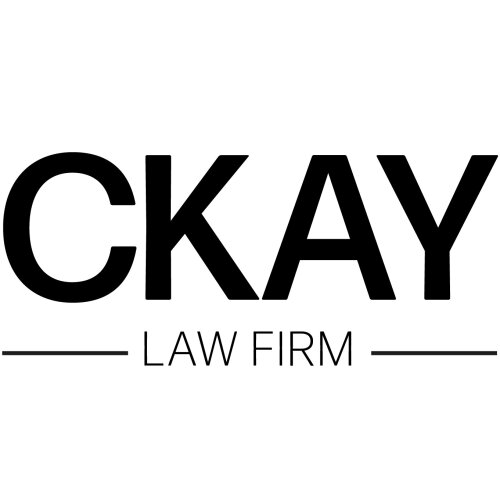Best Bankruptcy & Debt Lawyers in Sisli
Share your needs with us, get contacted by law firms.
Free. Takes 2 min.
List of the best lawyers in Sisli, Turkey
Turkey Bankruptcy & Debt Legal Articles
Browse our 1 legal article about Bankruptcy & Debt in Turkey written by expert lawyers.
- Navigating Corporate Debt in Turkey: A Guide for Businesses
- In today's challenging economic climate, many businesses in Turkey find themselves struggling with commercial debt. Whether your company is dealing with business loans, trade liabilities, or other financial obligations, understanding the available debt relief options is crucial for regaining financial stability and ensuring operational viability. This guide explores the various... Read more →
About Bankruptcy & Debt Law in Sisli, Turkey
Bankruptcy and debt law in Sisli, Turkey, is governed by both national legislation and local regulations designed to assist individuals and businesses in financial distress. The main objective of these laws is to provide a structured process for dealing with insolvency, which can help preserve the rights of creditors while offering a chance for debtors to reorganize or relieve their debts. Influenced by Turkey's Civil Law system, these laws aim to ensure a fair distribution of a debtor’s assets among creditors and to facilitate potential rehabilitation for financially troubled entities.
Why You May Need a Lawyer
Seeking legal assistance is crucial for anyone facing complex financial situations due to several reasons:
- Legal Representation: Lawyers can represent clients effectively in court or negotiations, helping them navigate the complexities of bankruptcy proceedings.
- Expert Advice: Legal experts offer guidance on the right type of bankruptcy to file or alternative debt relief options best suited for an individual's circumstances.
- Regulatory Compliance: They ensure that all the necessary documentation complies with Turkish law, reducing the risk of errors that could delay proceedings.
- Debt Management: Understanding rights under the law can help debtors to manage their debts or potentially renegotiate them more favorably.
Local Laws Overview
The key aspects of local bankruptcy and debt laws in Sisli include:
- Enforcement and Bankruptcy Code (İİK): This code governs the enforcement of debts and the procedures for bankruptcy in Turkey.
- Concordat Option: Debtors can apply for a concordat, a legal agreement with creditors to provide a debt repayment plan, accepted by the majority of creditors.
- Debt Restructuring Programs: These are available for both individuals and companies looking to come to terms with creditors outside of formal bankruptcy proceedings.
- Consumer Bankruptcy: Special provisions exist for individuals, with personal bankruptcy proceedings allowing for the possible discharge of certain debts.
- Prioritization of Claims: Secured creditors take precedence, followed by employee wages, taxes, and unsecured creditors in the distribution of an insolvent debtor's estate.
Frequently Asked Questions
What happens when I file for bankruptcy in Sisli?
Filing for bankruptcy initiates a legal process where the court may take control of the debtor's assets to pay off creditors. Depending on the type of bankruptcy, it can lead to asset liquidation or allow debt restructuring.
Can I file for a concordat without a lawyer?
While it's possible to file for a concordat on your own, hiring a lawyer is recommended to ensure proper compliance with legal requirements and to effectively negotiate with creditors.
How long does bankruptcy last in Turkey?
The duration of bankruptcy proceedings can vary. It generally takes a few months to a few years depending on the complexity of the case and type of bankruptcy filed.
Can my debts be fully discharged?
Some debts can be discharged under personal bankruptcy proceedings, but not all. Certain debts like tax obligations and child support are typically non-dischargeable.
What is the role of a trustee in bankruptcy?
A trustee is appointed to oversee the liquidation of assets and fair distribution of proceeds among creditors, ensuring that all legal processes are adhered to.
How can bankruptcy affect my credit score?
Filing for bankruptcy significantly impacts your credit score, which may make obtaining future loans or credit more challenging. The bankruptcy record can stay on your credit report for several years.
Can I keep my home if I file for bankruptcy?
Whether you can keep your home depends on its value, the exemption laws, and specific bankruptcy filing type. In certain cases, it may be protected from creditors.
What are my options if I cannot afford to pay my debts?
Options include filing for bankruptcy, negotiating a payment plan with creditors, or considering a concordat to create a manageable debt repayment schedule.
Is debt settlement a good alternative to bankruptcy?
Debt settlement may be a viable alternative if creditors are willing to negotiate. It often results in lower payments than the full amount owed but generally negatively impacts credit scores.
Can businesses apply for bankruptcy in Turkey?
Yes, businesses can file for bankruptcy. They can either liquidate their assets or reorganize under different bankruptcy chapters to continue operations under a new financial structure.
Additional Resources
For further assistance, consider reaching out to:
- İstanbul Bar Association: Offers legal aid and can refer you to qualified bankruptcy lawyers.
- Consumer Rights Association in Turkey: Provides guidance for individuals in debt and safeguards consumer rights.
- Local Chambers of Commerce: Often provide resources and information for businesses facing financial difficulties.
- İstanbul Courts Bankruptcy Office: For filing bankruptcy cases and getting official guidelines.
Next Steps
If you need legal assistance in bankruptcy and debt issues in Sisli, consider the following steps:
- Consult a Lawyer: Schedule a meeting with a specialized bankruptcy lawyer to discuss your specific situation.
- Gather Financial Documents: Collect all relevant documents related to your debts, assets, and income to facilitate a comprehensive review by your legal counsel.
- Understand Your Options: With the help of your lawyer, evaluate all available options including bankruptcy, debt consolidation, or settlement.
- Initiate Legal Proceedings: If recommended, proceed with filing for bankruptcy or other suitable legal processes under Turkish law.
- Plan for the Future: Work on a financial recovery plan post-bankruptcy to rebuild credit and maintain financial health.
Lawzana helps you find the best lawyers and law firms in Sisli through a curated and pre-screened list of qualified legal professionals. Our platform offers rankings and detailed profiles of attorneys and law firms, allowing you to compare based on practice areas, including Bankruptcy & Debt, experience, and client feedback.
Each profile includes a description of the firm's areas of practice, client reviews, team members and partners, year of establishment, spoken languages, office locations, contact information, social media presence, and any published articles or resources. Most firms on our platform speak English and are experienced in both local and international legal matters.
Get a quote from top-rated law firms in Sisli, Turkey — quickly, securely, and without unnecessary hassle.
Disclaimer:
The information provided on this page is for general informational purposes only and does not constitute legal advice. While we strive to ensure the accuracy and relevance of the content, legal information may change over time, and interpretations of the law can vary. You should always consult with a qualified legal professional for advice specific to your situation.
We disclaim all liability for actions taken or not taken based on the content of this page. If you believe any information is incorrect or outdated, please contact us, and we will review and update it where appropriate.
Browse bankruptcy & debt law firms by service in Sisli, Turkey
Sisli, Turkey Attorneys in related practice areas.









